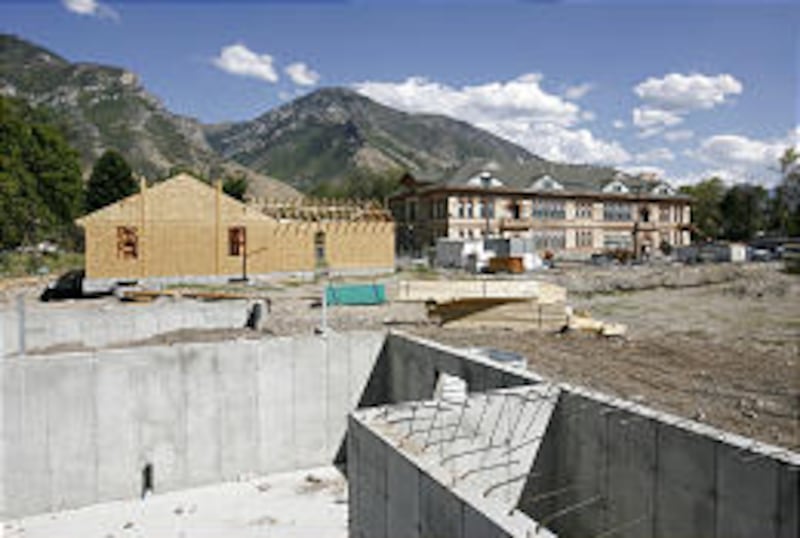PROVO — The strange case of the 108-year-old hand-scrawled playground deed is now the subject of a lawsuit.
The long-forgotten deed surfaced in May, revealing that Provo philanthropist Ed Loose donated land to the then-new Maeser School in central Provo in 1898 on one condition — that it remain a playground forever.
The school closed in 2002 and, unaware of the Loose deed, the Provo School District sold the entire block in 2004 to a group that promised to save the historic building by pulling together a fragile collection of federal grants, tax credits and historic preservation funds to convert the school into low-income housing for active seniors.
The funding for the $5.2 million project depends in part on building 12 homes around the school by a June 2007 deadline.
Jose and Meagan Sanchez bought one of the planned homes that, if built, apparently would stand on land Loose intended for the playground. The deed's condition was that if it were violated, the land would revert to his heirs.
So the renovation group and the Sanchez family filed a complaint against the Loose heirs last week, asking a judge to clear up the mess. The heirs, who said they don't want the land but want to preserve their ancestor's wish, welcomed the suit and hope for a friendly resolution.
"This is the civilized way of sorting this out," said Edwin Peterson, a great-grandson named after Loose. Peterson also is a Uintah County attorney who deals with civil law and therefore appreciated the complex deal that saved the Maeser School.
"They want the reservation to go away because they're trying to do an enormously honorable and wonderful thing," Peterson said. "I do know the funding for this project is kind of a house of cards, and I'd prefer not to knock that house of cards over."
Provo Housing Authority director Doug Carlson leads the renovation effort and agreed the suit is just the natural progression of trying to settle the title for the land.
"We're all interested in knowing how valid the warranty deeds are," Carlson said. "That's what this legal filing will do — allow a judge to determine the validity of the warranty deeds."
Many in the neighborhood are fighting to preserve the park. They have tried to find other space in the city where the homes required by a federal grant could be built. Other neighbors say they are fine with a park three blocks away across busy 900 East and welcome the new families that would occupy the homes around the Maeser building.
The lawsuit contends that the school district violated the Loose deed in 1957, when it built an addition and parking lot. Carlson said the land set aside by Loose has not been used as a playground for nearly 50 years, and the lawsuit asks a 4th District Court judge to declare that the right of reversion in the deed has expired and is unenforceable.
Peterson recently found pictures he said show him with his wife and son playing on the Maeser playground in 1996. The pictures show the school in the background.
Carlson said that playground was not on land donated by Loose.
The situation is clouded further by a second warranty deed, filed in 1910 when Loose allowed the school to build an addition over the playground but donated new land on the block for a playground, with the same condition.
The renovation of the Maeser School has gone ahead despite the uncertainty.
"We anticipate completion of the school and opening the first week in October," Carlson said.
The nonprofit Rural Housing Development Corporation is building nine of the 12 homes around Maeser, but it is waiting on the other three until the court rules. Carlson said he would begin to grow nervous about meeting the June funding deadline if the homes aren't started by Jan. 1.
Peterson still isn't sure what form a resolution might take.
"My mandate is to do what my great-grandfather wanted, not what makes the people in the neighborhood happy or what makes the Maeser people happy. I'm not interested in money. We don't want a dime out of this."
One possibility is naming the apartments after Loose
"One of the concepts is a memorial to him," Peterson said. "The people in the neighborhood really, really, really want a park. I don't know how that would be funded."
Provo's mayor and City Council have said the city can't pay for a park at Maeser.
"When you get a situation like this, you can't make everybody happy," Peterson said. "You have to just hunker down and do what you think is right."
E-mail: twalch@desnews.com


